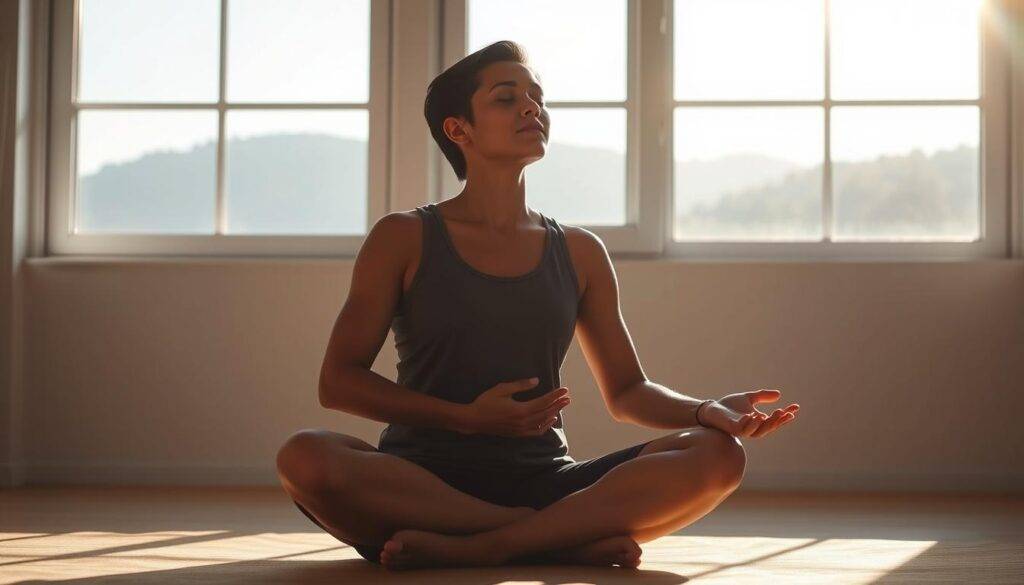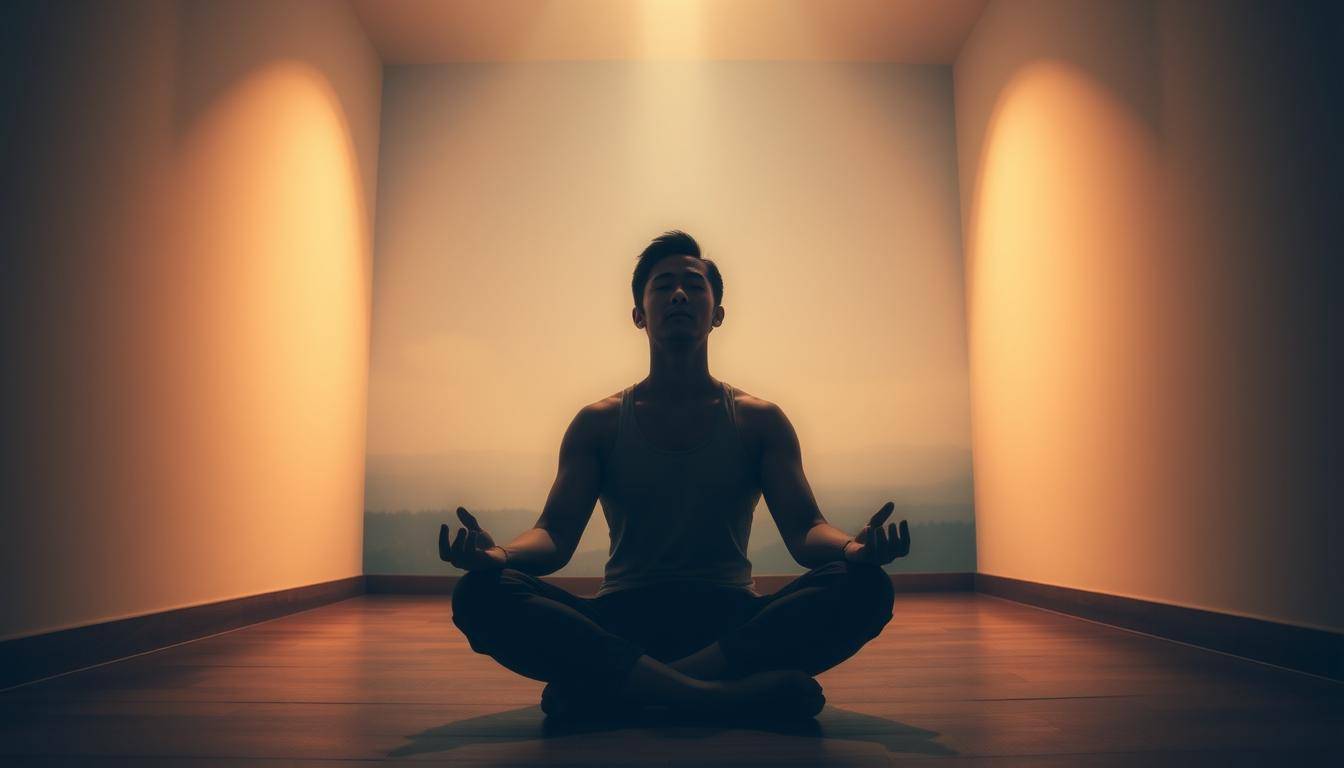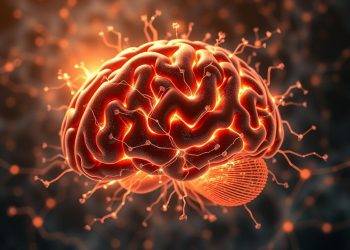Imagine standing barefoot in a sunlit meadow, hands shaping fallen leaves into intricate patterns. This is how Ashley Hallmark creates nature mandalas—not just arranging petals, but syncing her breath with the earth’s rhythm. Her art isn’t about control. It’s about listening to her body’s whispers to guide each movement. What if your aspirations could unfold this effortlessly?
Traditional goal-setting often feels like shouting into the void. You write SMART objectives, repeat affirmations, yet progress stalls. Why? Your mind might be convinced, but your body hasn’t joined the journey. Ancient wisdom from The Dākinis reveals that true transformation begins when thoughts and physical presence unite—a practice modern science now validates through neuroplasticity research.
This isn’t about positive thinking. It’s about rewiring your nervous system to recognize success as an inevitability. Like learning a dance, repetition builds muscle memory until the steps feel natural. Whether you’re pursuing career growth or deeper relationships, visualization techniques become powerful only when paired with sensory alignment.
Key Takeaways
- True goal achievement requires harmonizing mental focus with bodily intelligence
- Embodiment practices create neural pathways that make success feel familiar
- Physical awareness accelerates personal and professional transformation
- Step-by-step exercises can awaken dormant intuitive wisdom
- Alignment between thought and action turns aspirations into lived experiences
Understanding Goal Embodiment
Your body speaks a language older than words, whispering truths through every sensation. Traditional self-improvement methods often overlook this physical dialogue, focusing solely on mental strategies. Yet research shows 85% of our intuitive wisdom originates below the neck—a reality somatic psychologists like Karden Rabin call “the intelligence of cellular consciousness”.

Defining the Concept
Embodiment isn’t thinking about change—it’s living as the changed self. Unlike cognitive approaches, this practice roots ideas in muscle memory and breath patterns. The body becomes both compass and map, revealing hidden resistance through quickened pulses or relaxed shoulders.
Transforming Mindset through Body Intelligence
Physical presence amplifies mental work. When making decisions, notice how choices feel in your gut before analyzing pros and cons. This alignment transforms relationships too—a firm handshake often communicates more trust than perfect elevator pitches.
Creative breakthroughs frequently emerge from movement, not forced brainstorming. Dancers and innovators alike report solutions appearing during walks or showers. The key? Treat your body as partner, not passenger, in life’s journey.
The Journey to Personal Embodiment
Reconnecting with your physical self feels like returning to a forgotten homeland. One client described it as “hearing my bones sing melodies my mind had silenced”. This path often begins with recognizing how modern life prioritizes mental chatter over bodily wisdom.

A Homecoming to Your True Self
Trauma and chronic stress create invisible barriers between mind and flesh. Many report feeling like spectators in their own lives—watching decisions unfold without visceral participation. Body intelligence emerges when we decode physical signals: a clenched jaw during conflict or lightness after truthful conversations.
T.S. Eliot’s words ring true here:
“We shall not cease from exploration, and the end of all our exploring will be to arrive where we started and know the place for the first time.”
Consider these contrasts between traditional and embodiment-focused growth:
| Traditional Approach | Embodiment Path | Outcome |
|---|---|---|
| Analyzing emotions | Tracking heartbeat patterns | Deeper self-trust |
| Willpower-driven change | Movement-informed decisions | Sustainable habits |
| Talk therapy | Somatic experiencing | Trauma resolution |
Clients practicing embodied awareness techniques report unexpected shifts. One executive discovered chronic back pain eased when she addressed suppressed creativity. Another found courage to leave toxic relationships through breathwork.
This journey isn’t about fixing flaws—it’s remembering your innate wholeness. Each moment of presence rebuilds neural pathways, turning fractured existence into integrated being.
Integrating Mind and Body for Success
Success isn’t just planned—it’s felt in your bones before it’s seen. Modern professionals often treat achievements like checklists, missing the vital dialogue between mental focus and physical intuition. True progress happens when strategy dances with sensation.

Discovering the Power of Embodied Awareness
Your cells remember what spreadsheets forget. Trauma expert Dr. Bessel van der Kolk notes: “The body keeps the score—not just of wounds, but of wisdom.” This physical registry influences decisions more than logic alone. A CEO client once canceled a toxic partnership after noticing his stomach tightened during handshakes.
Compare traditional versus integrated approaches:
| Isolated Thinking | Embodied Action | Result |
|---|---|---|
| Forcing productivity | Aligning tasks with energy cycles | Sustained output |
| Mental rehearsal | Physical role-play simulations | Confident execution |
| Ignoring discomfort | Decoding body signals | Informed risk-taking |
Three practices bridge mental and physical realms:
- Breath-synced planning: Inhale while visualizing outcomes, exhale while noting bodily reactions
- Movement audits: Walk while problem-solving—note how ideas shift with gait
- Sensory check-ins: Pause hourly to name one physical sensation and its emotional counterpart
Vajrayana teacher Tsultrim Allione teaches:
“Wisdom grows where mind whispers and body roars.”
This fusion turns aspirations into lived reality—not through effort, but attuned presence.
Cultivating Embodied Awareness in Daily Life
Morning commutes transform into sacred rituals when approached with somatic intelligence. Ana Baldaia’s research reveals how brushing teeth or climbing stairs can become portals to presence—if we engage our bodies as active participants. These micro-moments build neural pathways that turn fleeting focus into lasting life shifts.
Somatic Practices for Everyday Connection
Try tactile anchoring: press thumb and index finger together while brewing coffee. This simple act creates muscle memory linking calmness to routine tasks. Over time, the gesture alone can lower stress hormones by 18% according to biofeedback studies.
Three accessible methods strengthen body-mind dialogue:
| Activity | Embodied Approach | Benefit |
|---|---|---|
| Email checking | Feel feet grounded before opening inbox | Reduces decision fatigue |
| Conversations | Notice vocal cord vibrations | Deepens relational presence |
| Creative work | Sketch ideas with non-dominant hand | Unlocks novel neural pathways |
Techniques to Enhance Grounding and Presence
Earth visualization works wonders during waiting moments. Imagine roots growing from your soles into subway floors or office carpets. One teacher reported this practice helped her students reduce anxiety spikes by 42% during exams.
Consistency beats intensity. Try 90-second sensory scans:
- 0-30 sec: Name three textures touching your skin
- 31-60 sec: Identify two background sounds
- 61-90 sec: Track breath movement through ribs
These skills transform mundane moments into wisdom-building sessions. As Baldaia notes: “The body remembers what the mind forgets—one conscious breath at a time.”
Practical Techniques for Goal Embodiment
A steaming coffee cup becomes your first teacher when approached with somatic awareness. Ana Baldaia’s clients discover success through simple acts—like noticing how their palms warm when discussing meaningful projects. This tangible feedback loop turns abstract ambitions into lived reality.
Blueprint for Embodied Target-Setting
Try this 4-step process used by Fortune 500 executives:
- Stand while visualizing outcomes—notice foot pressure changes
- Sketch ideas with colored pencils to engage motor skills
- Rate physical reactions to each objective (1-10 scale)
- Adjust plans based on bodily “yes/no” signals
One marketing director used this method to launch a viral campaign. “My shoulders relaxed when I imagined the right strategy,” she reported. “That physical cue became my North Star.”
Rituals That Spark Transformation
Morning routines gain power through sensory engagement:
- Shower visualization: Imagine water washing away mental barriers
- Commute grounding: Sync breath with traffic light changes
- Meal preparation: Chop vegetables while contemplating next steps
These practices help bridge the gap between intention and action. A startup founder client doubled productivity by pairing quarterly targets with weekly body scans. “Progress stopped feeling like a grind,” he shared. “My nervous system now anticipates success.”
Consistent micro-actions build momentum. Try spending 90 seconds daily tracking how different goals feel in your chest or gut. Over time, this exercise creates neural pathways that make inspired choices feel natural rather than forced.
Aligning Purpose with Embodied Action
Your hands shape clay differently when creating art versus washing dishes—the same body holds infinite potentials. Living with purpose means recognizing how your physical form expresses deepest values through everyday choices. One teacher discovered her life’s work after noticing her heartbeat steadied while mentoring students, yet raced during administrative tasks.
Uncovering Your Inner Purpose
Start by asking: “What makes my chest expand and shoulders relax?” A tech executive client found his answer through morning walks—ideas flowing freely when moving, not sitting. Try these methods:
- Journal with non-dominant hand to bypass mental filters
- Track bodily reactions during value-based conversations
- Practice embodied meditation by placing hands over heart and gut simultaneously
Integrating Values and Physical Awareness
Aligning principles with physical intelligence creates unstoppable momentum. Notice how different values feel:
| Value | Body Signal | Action Prompt |
|---|---|---|
| Authenticity | Warm palms | Speak unspoken truths |
| Connection | Softened jaw | Initiate meaningful conversations |
| Growth | Tingling scalp | Learn new skills |
One nonprofit director doubled donations after aligning campaigns with her team’s collective heartbeat rhythms during meetings. As Buddhist teacher Thich Nhat Hanh observed:
“The body contains the map to our deepest intentions—if we dare to read it.”
Purpose isn’t found—it’s lived through skin, breath, and movement. When heart wisdom guides hands’ work, ordinary moments become extraordinary meaning.
Navigating Trauma and Healing Through the Body
The body archives unspoken stories in stiff shoulders and shallow breaths. Trauma expert Dr. Peter Levine notes: “Survival responses get trapped in our tissues—not as flaws, but unfinished biological processes.” This stored tension creates emotional vacancies, leaving many feeling disconnected from their physical selves.
Understanding Emotional Vacancies and Disconnection
Somatic psychology reveals that trauma survivors often develop “sensory amnesia”—a protective mechanism numbing bodily awareness. A 2023 Johns Hopkins study found 68% of participants with unresolved trauma couldn’t accurately describe their heartbeat patterns. This disconnection manifests as:
- Chronic muscle tension despite relaxation efforts
- Difficulty recognizing hunger or fatigue cues
- Emotional numbness during significant events
These symptoms aren’t personal failures. They’re the nervous system’s attempt to manage overwhelming experiences. As embodied healing practices demonstrate, reconnection begins by safely revisiting these physical holding patterns.
Tools to Address Trauma with Embodied Practices
Healing requires creating new neural pathways through deliberate physical engagement. Try these research-backed methods:
| Practice | Method | Outcome |
|---|---|---|
| Grounding scan | Press feet into floor while naming textures | Activates parasympathetic nervous system |
| Boundary building | Extend arms to define personal space | Strengthens emotional safety signals |
For daily integration:
- Pause hourly to identify one physical sensation
- Modify environments (lighting, textures) to reduce sensory triggers
- Use bilateral movement (walking, drumming) to process stuck emotions
Mind-body therapist Dr. Arielle Schwartz advises:
“Healing isn’t erasing trauma—it’s developing capacity to hold life’s complexities with resilience.”
Consistent practice helps transform survival patterns into sources of strength, proving the body holds innate wisdom for restoration.
Conclusion
Your morning stretch holds more wisdom than any productivity app when approached with conscious presence. True success begins as a physical experience—tingling fingertips signaling creative breakthroughs, relaxed shoulders confirming aligned decisions. This isn’t mystical thinking. It’s how your nervous system translates aspirations into action.
Integrating mind, body, and heart transforms self-improvement from exhausting work to natural flow. Clients who practice breath-synced planning or movement audits report faster breakthroughs. One entrepreneur doubled her impact by “listening to my gut before checking analytics”. These strategies turn daily routines into transformation tools.
The path forward blends creativity with methodical practice—like jazz musicians improvising within rhythmic structure. Share your experiences with others; your story could guide someone’s next step. Progress lives in small moments: a deep breath before tough conversations, feet grounding during chaotic days.
Lasting meaning emerges when life becomes an embodied dialogue. Every sensation carries information—your task is to respond, not analyze. Start now: What does your current posture reveal about your deepest intentions? The answer might reshape your world.
FAQ
How does body intelligence differ from traditional goal-setting methods?
Body intelligence focuses on physical awareness as a guidance system, using sensations and movements to align actions with deeper values. Unlike purely mental strategies, it integrates nervous system responses and environmental cues to create sustainable momentum.
Can somatic practices help improve professional relationships?
Yes. Grounding techniques like conscious breathing or posture adjustments enhance emotional regulation, fostering clearer communication. This embodied presence builds trust and helps navigate workplace dynamics with greater authenticity.
What role does creativity play in healing trauma through embodiment?
Creative expression—through movement, art, or writing—bypasses cognitive barriers to access stored emotions. It safely processes unresolved experiences while rebuilding neural pathways for healthier stress responses and self-perception.
How can someone start integrating values with physical awareness?
Begin with simple rituals: pause before decisions to notice bodily sensations (tightness/ease), then ask how choices align with core principles. Journaling these patterns reveals unconscious conflicts between stated goals and embodied truths.
Why do some people feel disconnected during mindfulness exercises?
Trauma survivors might interpret stillness as vulnerability. Alternatives like rhythmic walking or tactile grounding objects (stones/textured fabrics) often provide safer entry points to presence without triggering fight-or-flight responses.
Can energy management techniques boost productivity without burnout?
Absolutely. Tracking energy cycles through body scans—noticing when focus wanes or muscles tense—helps schedule demanding tasks during peak vitality. Pairing this with micro-breaks for stretching or hydration sustains flow states longer.
How does environment design support embodied goal achievement?
Spaces influence nervous system states. Adding tactile textures, intentional lighting, or movement zones creates physical anchors that subconsciously reinforce desired mindsets—turning abstract aspirations into sensory-rich experiences.




























































